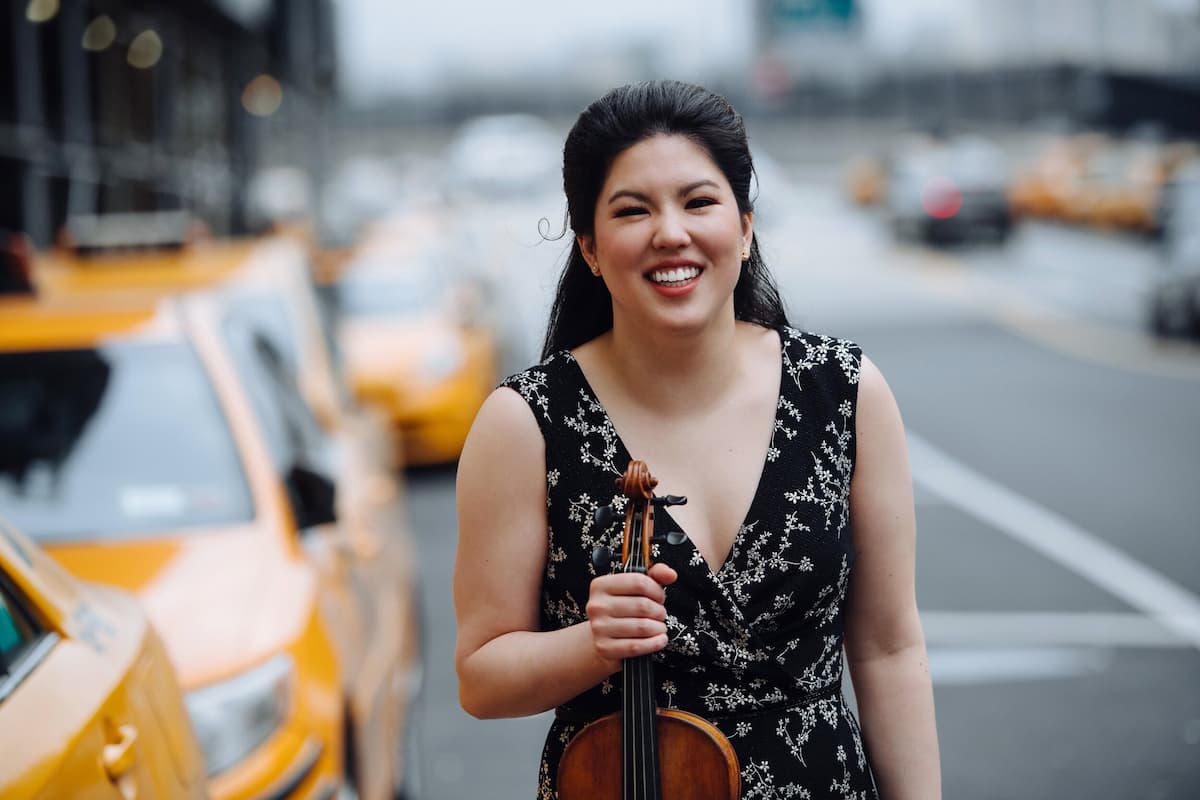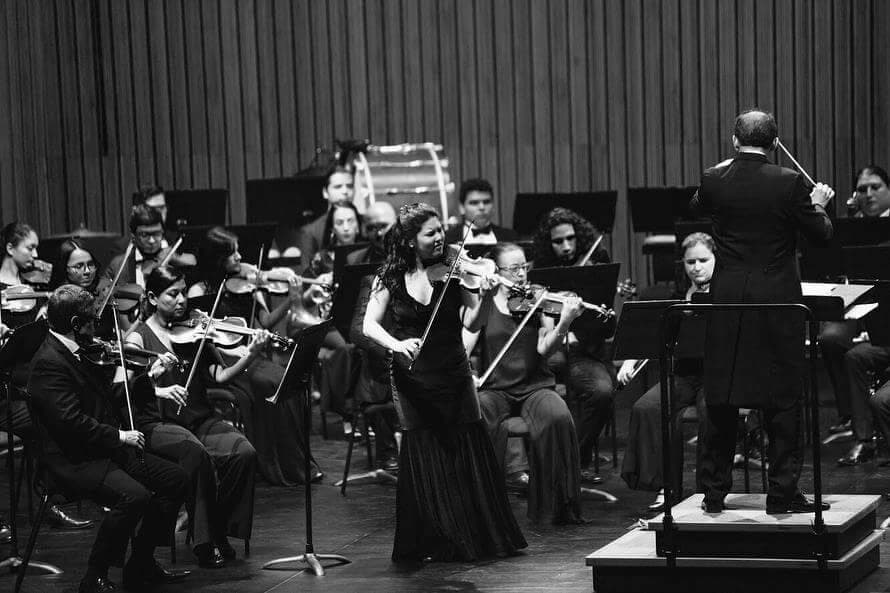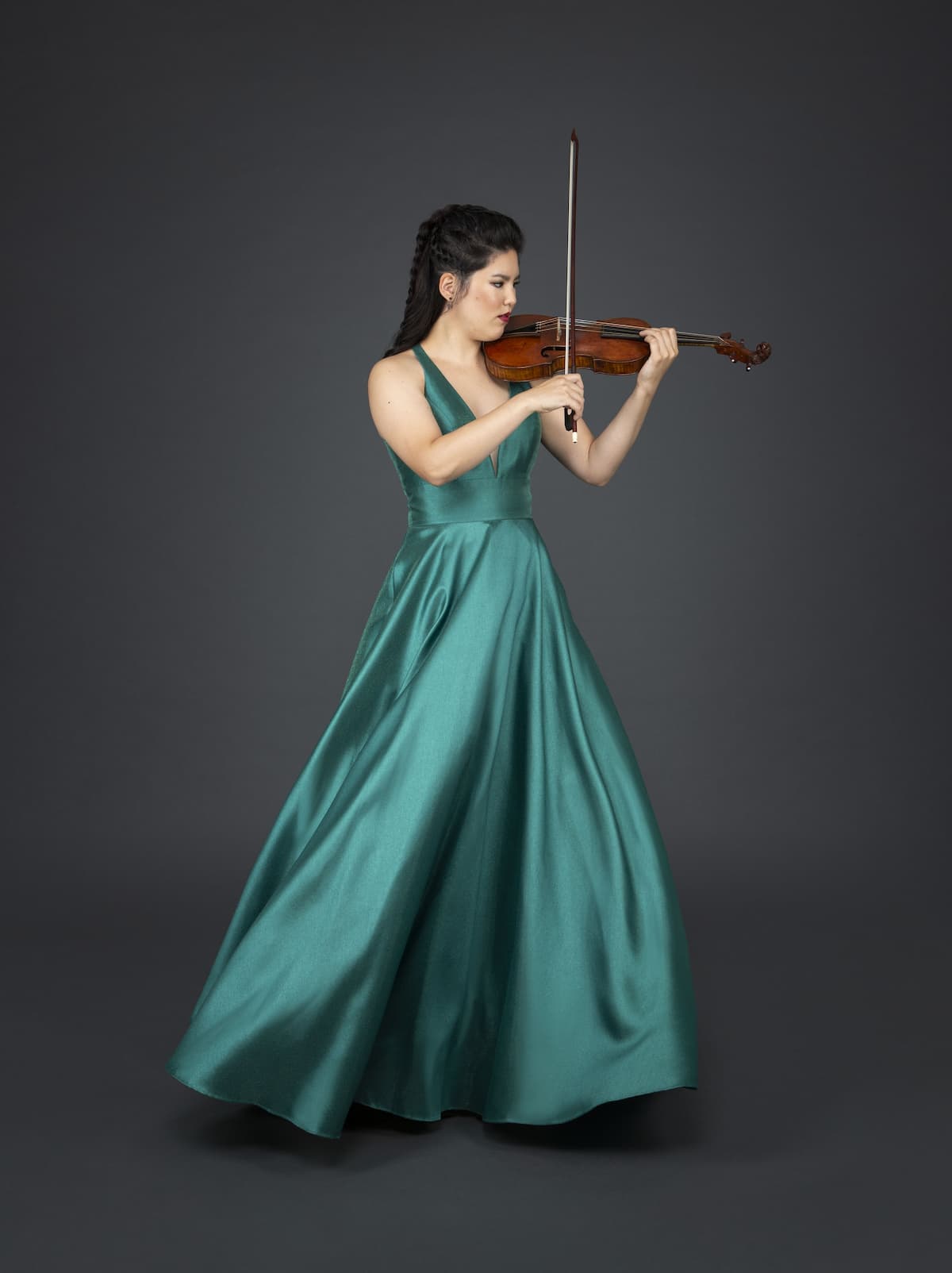“Play It How You Want To”
The worlds of ‘modern’ and ‘historical’ performance are often seen as two very different beasts – but not for young violinist Rachell Ellen Wong. The only early music practitioner to have ever received an Avery Fisher Career Grant, Rachell is equally at home in the sound worlds of Vivaldi and Shostakovich, challenging assumptions about the divides commonly sown between early and modern music.

Rachell Ellen Wong © Jiyang Chen
Rachell studied at the University of Texas at Austin, Indiana University, and the Juilliard School, and has already performed with ensembles including the Academy of Ancient Music, Seattle Symphony, Bach Collegium Japan, Orquesta Sinfónica de Panamá, and Les Arts Florissants. Rachell chats to me about the distinction – or, for her, lack thereof – between modern and historical performance.
Rachell Ellen Wong Performs J.S. Bach’s Allegro from Violin Concerto in D minor, BWV 1052R
How did it feel to find out you’d won the Avery Fisher Career Grant?
I found out in December 2019. I happened to be in Shanghai at the time, and I didn’t sleep. It was something that I’d always known about, [but] I never thought I would get one.
I mean, I always wanted one, [but] I just never thought it would be me because I’ve never been a part of that elite, you know, going to the right school and all that stuff.
I was so excited. And I wasn’t supposed to tell anyone, [so] you just look like a crazy person to your friends.
How did you get into historical performance? Did you face a choice or was it a natural progression?

© Orquesta Sinfonica, Costa Rica
I think, in a way, a lot of people find [historical performance] because they’re being a little rebellious and something isn’t going right with the normal, traditional way that they’re being taught music. It was a little bit of that for me because I always felt like there was something more I wanted to do.
When I was a child, my dad gave me a recording of Rachel Podger’s solo Bach. I didn’t really know what I was listening to – I knew it was Bach, and I just knew that it was amazing and different than the other recordings I had been listening to because I was already studying them at that point. And I remember I thought, ‘Oh, her violin sounds lower’. So I just started tuning my violin down when I was, like, nine [years old].
And then I’d go into my lesson and my teacher, who was very awesome and very open-minded was like, ‘Okay, you can do that A’. Every lesson, I would tune my A to [something] different. I don’t know what I was tuning it to, but it would always be different!
But that was the extent of my experimentation really until I got to college and discovered there’s actually a thing called a baroque violin, and you use this baroque bow and there are all these composers that I’d never heard about before. That kind of just bloomed when I went to my first Master in Indiana.
How does it feel switching between baroque and modern violin?
At first, it was very different. I was just switching back and forth, especially at Juilliard where in that programme, you’re just doing 24/7 baroque violin. At first switching back was so hard, but every time I did it, it got easier and easier.
It is very different, the way you hold it, without a shoulder or chin rest, and the strings are different. I don’t know if this is a good comparison, but modern strings are like a Ferrari, and gut strings are like you’re riding a horse!
Both are great, and both teach you how to play the other one. And they complement each other so well because I’ve learned so much from each of them to play the opposite one.
Rachell Ellen Wong Plays Tartini’s Violin Sonata in G Minor “The Devil’s Trill” on Baroque Violin
What inspired you to take up your instrument?
My dad decided I would play the violin. My mum was also a singer and a dancer. And he was a visual artist, so it was a very artsy family. I started soccer at the same time – as a kid it was my passion.
I was never going to be Messi. [I thought] ‘You can always play soccer but you’ve got to focus on violin because that’s how you’re going to go to college.’ And fortunately, I liked it!
Did you always know you were going to become a professional violinist?
Not until I got to college – I think I was a little bit head-in-the-clouds. Growing up, I was just doing this thing because my parents told me, and I’m good at it. And I like performing. And then when my parents dropped me off for college, that was the day I realised, oh, wait, they’re leaving, and I’m going to school here!
And then I realised this is actually something I really enjoy. The place I went to college [Austin, Texas]: I was lucky that it was a very open-minded, caring community.
My teacher there was great, and really taught me how to love what I was doing. And that’s where I figured, okay, I’m gonna do this.
Do you find that violinists get pigeonholed as baroque vs modern?

© Lucien Knuteson
I feel that people like to try to box you into one thing. Usually the baroque people say you’re too modern, or the modern people say you’re too baroque.
I find, though, that our generation or younger are much more open-minded. I like to tell people that I just play the violin. They weren’t calling it the baroque violin in 1700, because it was just a violin. I just play the violin as close to how it was played in the century or decade that I’m playing it in. It’s pretty hard to break out of people labelling you as one thing, but I’m also very used to it because I’m mixed race, and people either label me as very Asian or not Asian enough.
Tell me more about that experience.
I actually love talking about it, because it’s such a thing I grew up with not knowing how to talk about, and not having anyone to talk about it with or knowing the words to use.
I think because I always felt a little bit ‘other’, compared to everybody, it maybe opened the door for me to do weird things like baroque violin!
I’ve never wanted to do things the way that people have told me to do – even my teachers say, ‘Why don’t you ever do the things I’m asking you to do!’ (In a loving way, of course.)
I think that’s always been how I make music and how I want to perform. Because I never want to just do it the way everybody does it.
Even with Bach: I’ve done so many competitions, and they say you have to play Bach this way. Or none of the judges will agree with you, and then I just realised no one’s ever going to agree with how anybody plays Bach. It’s just a thing. You’ve just got to play it how you want to. And that’s been the best thing that I’ve learned.
For more of the best in classical music, sign up to our E-Newsletter
Rachell Ellen Wong Performs Mozart’s Violin Concerto No. 5




